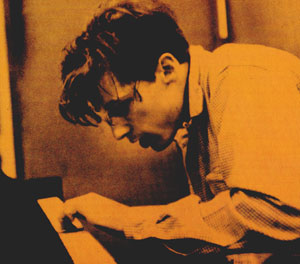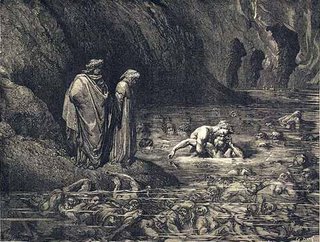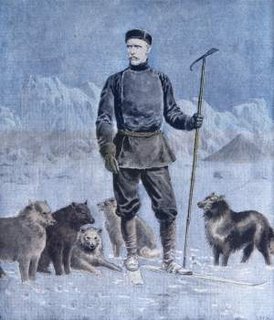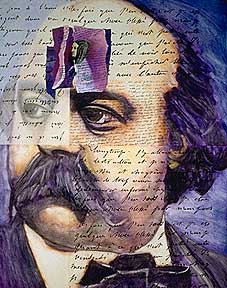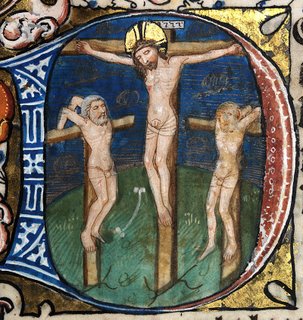
Beckett fact no. 73.
Ten mistakes in Beckett.
1) ‘Not count! One of the few satisfactions in life!’ Dan Rooney expostulates indignantly in
All That Fall. He wouldn’t have derived much satisfaction from the eighteen by fifty metre cylinder in the John Calder printing of
The Lost Ones whose surface area is a paltry 80,000 square centimetres. Revising the height downwards from eighteen to sixteen, Beckett managed to bring the dimensions back in line with the correct twelve million square centimetres of the original
Evergreen Review printing.
2) Still on the theme of innumeracy, ‘The figures given here are incorrect. The consequent calculations are therefore doubly erroneous’, we read in a footnote to
Watt of the Lynch clan and its sadly unrealized millennial ambitions.
3) ‘Atlas, son of Jupiter’ Pozzo exclaims in the original text of
Godot, where we now read ‘Atlas, son of Japetos’, someone having pointed out the mistake to Beckett.
4) Also in
Godot, Vladimir errs in his memory of inconsistency in the gospel accounts of Christ and the thieves. ‘Only one speaks of a thief being saved […] Of the other three three two don’t mention any thieves at all and the third says that both of them abused him’, he says. Except that while Luke has one good thief and Matthew two bad ones, there are two silent thieves in Mark, and two men (not described as thieves) in John.
5) Christopher Ricks notices this one in
Beckett’s Dying Words: that the ‘Grave’s disease’ mentioned twice in Murphy is in fact ‘Graves’ disease’. How hideous is the misplaced apostrophe.
6) The seven scarves quoted in the opening of
Murphy, when only six are enumerated, not to mention the fact that tying one behind one's back is a physical impossibility: that's all just to make sure you're paying attention.
7) Is this a mistake? The narrator of
Enough is identified by Martin Esslin and Vivian Mercier as a woman, between his references to penis-licking and breasts, but in the original French text
Assez Beckett wrote ‘
Si je m’étais retourné je ne l’aurais pas vu’, indicating that it’s a man. If this did strike him as a mistake, he corrected it by ungendering the sentence to ‘
En me retournant je ne l’aurais pas vu.’
8) A Deborah Warner production of
Footfalls was halted by the Beckett estate in 1994 for the athletic off-piste antics it handed to the normally foot-dragging May. However, where the original text specifies seven steps before she turns around, Beckett later fixed on nine. In
Collected Shorter Plays he forgot to bring V’s step-counting in the text into line with the diagram of the nine steps, but all attempts by the Beckett estate to have Beckett's own productions of the play retrospectively banned for tampering with the script have come to nothing.
9) Very late in life Beckett contributed to a project called
The Great Book of Ireland, which involved him copying the four lines of 'Da Tagte Es' onto vellum for the delectation of Charles Haughey and other political flunkeys back at home, but in his weariness/confusion/temporary (soon to be permanent) failure of the will to live, Beckett got the lines in the wrong order. Mistake though this was, it was as nothing to the trumpeting that followed of the quatrain as 'Beckett's Last Word', when it was obviously no such thing.
10) There's lots of back-and-forth 'he said'/'he said' dialogue in
Mercier and Camier, so it's hardly a surprise that Beckett loses trrack of who's saying what, as he does on page 74 of the Calder edition. Camier has ventured out to test the rain:
Well? said Mercier.
Don't rush me, said Camier.
He advanced to the corner of the street, in order to reduce the risk of error. Finally he regained the porch and delivered his considered opinion.
In our shoes I wouldn't, he said.
And may one inquire why not? said Camier.
Unless Camier has taken to talking to himself, I'm assuming that last 'Camier' should be his partner in pseudcoupledom, Mercier.
And finally, not a mistake in Beckett, but revealing none the less. Looking for references to mistakes in Beckett I noticed a reference to this ‘craze for explication’ (from
Catastrophe) in a 1994
Contemporary Fiction article by Therese Fischer-Seidel. Except that it’s a craze for ‘explicitation’, not ‘explication’. You never can be too careful!








